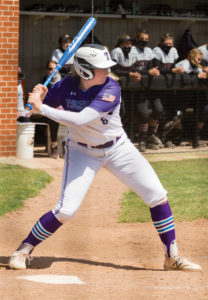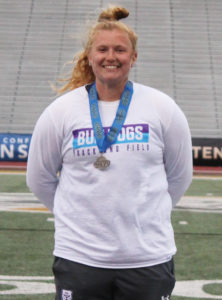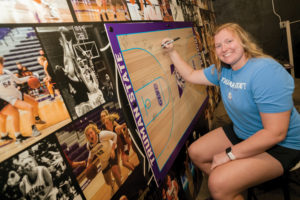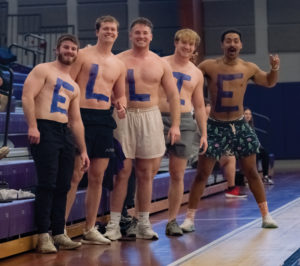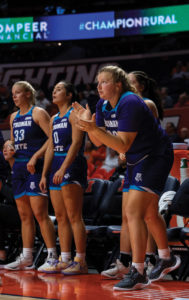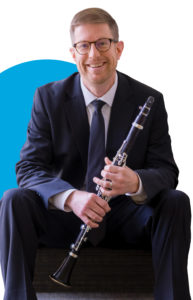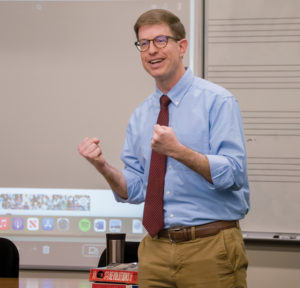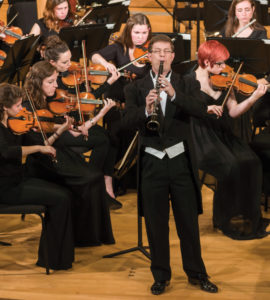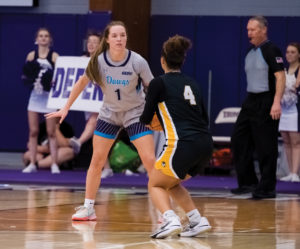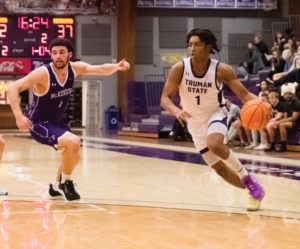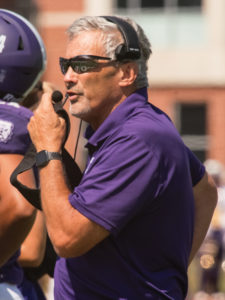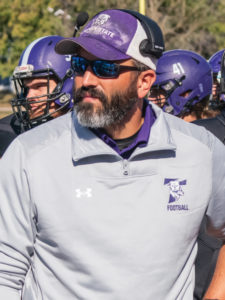Faculty pursuits of National Science Foundation grants have enabled Truman to secure access to two key pieces of cutting-edge technology.
In the past academic year, Truman faculty members helped secure nearly $1 million in National Science Foundation grants. One award has allowed the University to purchase a fluorescent confocal microscope. The other is providing Truman access to a supercomputer.
Through the NSF’s Major Research Instrumentation program, a cohort of five faculty members received $300,000 for the fluorescent confocal microscope, which will open research avenues and provide more hands-on opportunities for students. This unique tool can remove out-of-focus light from regions of a sample and can detect light emitted from a protein or molecule. Many techniques in cell biology use fluorescent probes to visualize where specific proteins or processes are happening in a cell. Taken together, this microscope gives users crisp, clear and detailed images of cell structure and function, which can help better understand animal development and even human disease.
A fluorescent confocal microscope is not something typically found at most undergraduate institutions. When interviewing for faculty positions in 2015, access to equipment like this was a high priority for Stephanie Maiden, associate professor of biology.
“It was one of the questions I asked – ‘does your department have a fluorescent confocal microscope?’ – and the answer in all cases except Truman was no,” Maiden said. “Other colleagues I know at undergraduate-focused institutions either do not have one or use one at a nearby R01 school.”
Truman previously had an older version of a fluorescent confocal microscope, which was also made available through the Major Research Instrumentation program, but the technology aged and it was too costly to fix or replace its components. Also, it was more difficult to use, so it was not readily available to students. This new model is more amenable to undergraduate use, which should lead to more course-based research projects, as well as expanded opportunities in faculty members’ independent research labs.
Maiden was one of five co-principal investigators who collaborated to secure funding. Brett Berke, associate professor of biology; Joyce Patrick, associate professor of biology; Hajee Mendis, assistant professor of biology; and Daniela Ostrowski, a former faculty member now with A.T. Still University, all played a role in securing the grant. All are pursuing research that benefits immediately by having a fluorescent confocal microscope. Additionally, the new equipment creates expanded research opportunities, as well as potential collaborative projects with ATSU.
Colin DeGraf, assistant professor of physics, was the co-principal investigator for a nearly $700,000 NSF grant that will provide Truman access to a high-performance computer (HPC), commonly referred to as a “supercomputer.” Truman is one of four primarily undergraduate schools – along with Missouri Western State University, Webster University and Southeast Missouri State University – collaborating to develop the HPC. Although the majority of NSF funding tends to go to research universities, schools like those in the consortium have been estimated to produce approximately 40% of STEM bachelor’s degrees.
Beyond career readiness, supercomputer access will expand potential research opportunities for Truman students and faculty members alike. That was a key factor in DeGraf’s involvement with the consortium. His current research examines how galaxies collide, which can involve looking at data from 15 to 20 million galaxies.
“On a very personal level, my research is computational. All of the research that I work on are using what are called cosmological simulations,” he said. “It’s a simulation that attempts to model as much of the universe as possible. Running those really requires a national- or international-level supercomputer.”
To solve the type of computationally intensive problems involved with research such as DeGraf’s requires a machine that can do a lot of calculations in a short amount of time. Central processing units have gotten faster over the years, but there are still limits in areas such as how many transistors can fit on a chip, or how to handle the heat they produce or transmission delays. Similarly, the number of cores a computer has will increase its speed. Modern home computers can have multiple cores, but it still is not enough to process the amount of data in some research. An HPC counters this speed problem by utilizing nodes, which are multiple servers networked together. Each node works almost like its own computer, but they can also work together to tackle bigger and more difficult problems. A single program can be run across multiple nodes resulting in more power and the ability to perform larger, more computationally expensive jobs. The current plan for the HPC in this project calls for 20 nodes, with each node having 128 computing cores and 512 GB of RAM.
Having access to this kind of computing power will allow for more cutting-edge research at Truman and can enable projects which would otherwise not be feasible. While his own research will benefit immediately, DeGraf foresees students getting the most out of this project. The NSF grant includes funding to send students to a summer workshop to learn more about high-performance computing so they can then act as student leaders on campus to help others make the most of the supercomputer. This will also provide them with additional hands-on experience with HPC use, administration and construction.
Students and researchers who benefit from the HPC could come from almost any scientific discipline. In their NSF application, DeGraf and his fellow investigators included cases ranging from astrophysical simulations, computational chemistry, data science, cybersecurity and genetics.
Truman and its partner schools on the HPC project will operate as the Computational Infusion for Missouri Undergraduate Science and Education (CIMUSE) consortium. Initially, that group will consist of only the four institutions listed in the grant, but eventually more will be invited to participate. All primarily undergraduate institutions across Missouri will be eligible to join, and the CIMUSE consortium will look to expand in order to maximize the use of the HPC and the impact it has on both faculty researchers and undergraduate students.
“The goal of this project is to bring more supercomputer access to students across Missouri,” DeGraf said. “It will be used for faculty research, but also we want the best for all of our students, and the more experience we can give them, the better suited they will be.”
The HPC itself will be physically housed at the University of Missouri’s HPC center, but it will be accessible from anywhere in the world. Tentative plans are for Truman faculty and students to have HPC access as soon as the coming academic year.
 After years of planning, the Greenwood Interprofessional Autism Center will provide services for the community and give students hands-on experiences in a growing field.
After years of planning, the Greenwood Interprofessional Autism Center will provide services for the community and give students hands-on experiences in a growing field.

